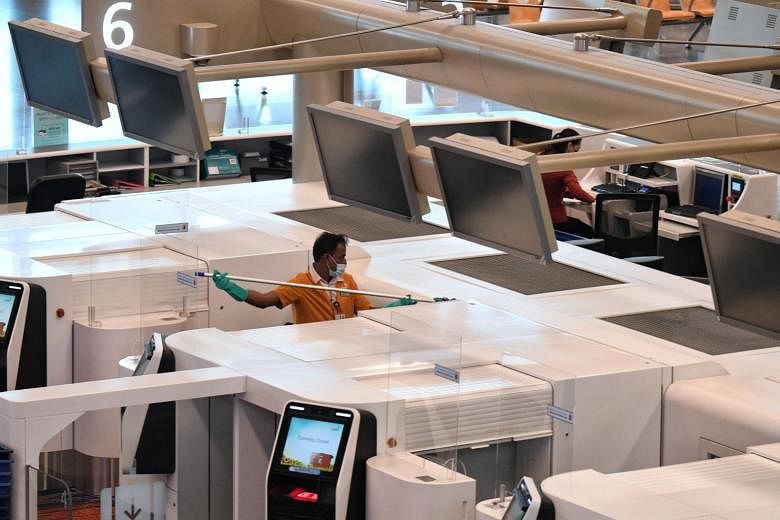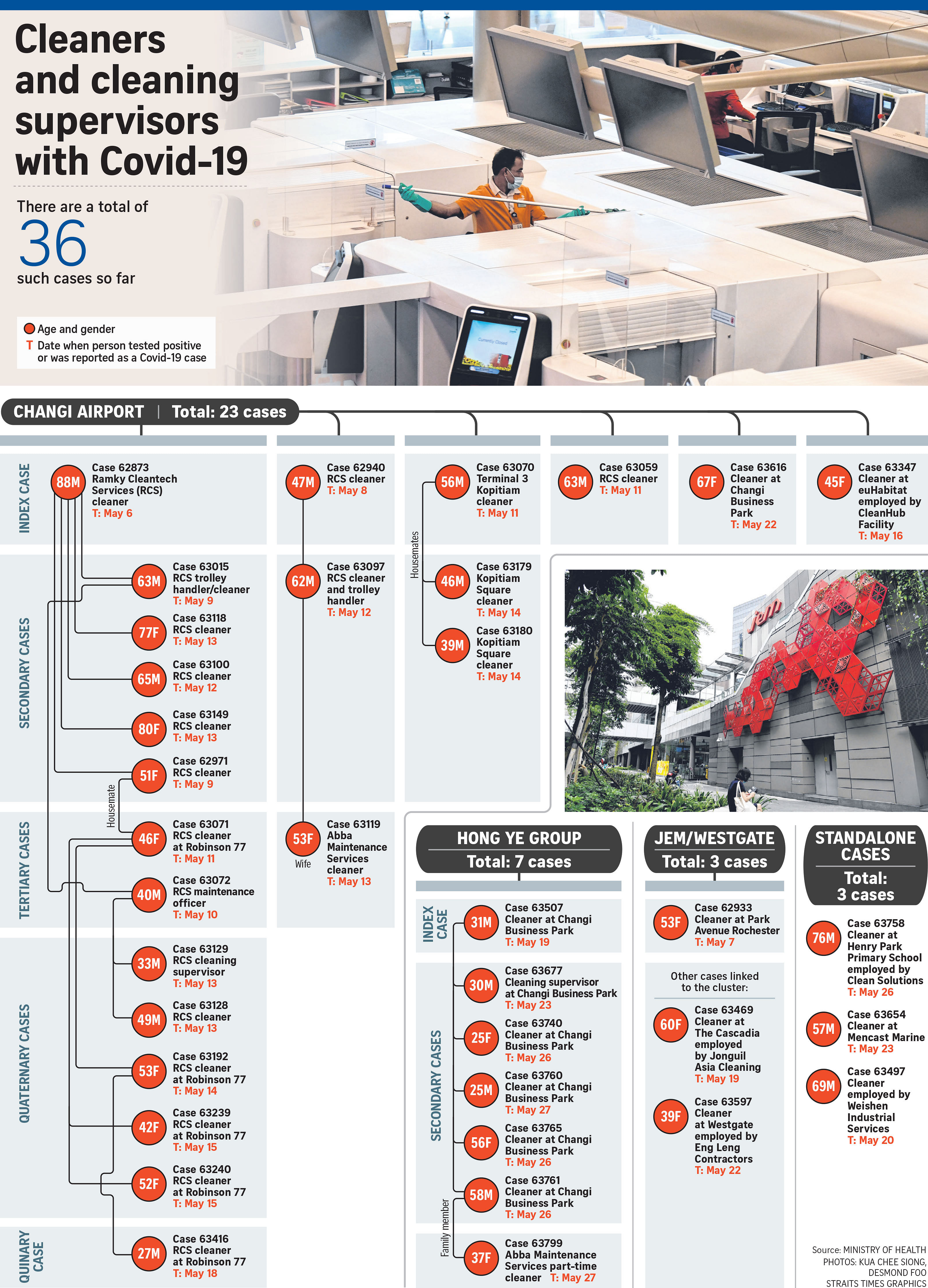SINGAPORE - Cleaners deployed to higher-risk areas, such as airports, are being prioritised for Covid-19 vaccination, while other cleaners have been encouraged to get their shots, amid a growing number of infections among such workers.
More training is also being considered to help keep them safe, the labour movement told The Straits Times (ST) on Friday (May 28).
Said National Trades Union Congress assistant director-general Zainal Sapari: "We are working with our union leaders and management to encourage more cleaners to go for their vaccination to protect them as they carry out their work as essential workers.
"We are also open to exploring how we can better protect our cleaners in high-risk areas by advocating for cleaners' training on how to don PPE (personal protective equipment) safely and properly so that we can minimise the risks of possible infections."
Since May 5 - when an 88-year-old Ramky Cleantech Services employee became the first case detected in a large cluster at Changi Airport - about one in 12 community cases has been cleaners. At least two of them were index cases, the first to be identified, of recent Covid-19 clusters. So far, 36 cleaners and cleaning supervisors have been infected.
In one cluster, six cleaners working for the Hong Ye Group and three of their household contacts have tested positive for Covid-19. The index case is a 31-year-old who works at Changi Business Park.
A spokesman for the cleaning company said it had reviewed operations to ensure workers were protected. Staff keep to their assigned areas at workplaces, and also have different meal and reporting times.
Assigned stations are also disinfected daily and cleaned three to five times a day, while cleaning equipment is disinfected, washed and changed more frequently.
Ramky Cleantech Services, with 16 employees found to have Covid-19 this month, did not respond to repeated queries from ST.
There are about 58,000 cleaners in Singapore. Experts say that they are a vulnerable group and could be a critical weak link in the nation's fight against Covid-19.
Many are elderly, come into contact with surfaces that could be contaminated with the virus, and work in public spaces where they risk spreading the virus to others.
Investigations by the Ministry of Health suggested that a 53-year-old cleaner working at Park Avenue Rochester, a stay-home notice dedicated facility, may have been the source of infection for a cluster at Westgate and Jem malls when she visited Westgate on May 6. The cluster now has 60 cases linked to it.
Citing multiple studies, including one conducted by the National Centre for Infectious Diseases last year, Professor Paul Tambyah, president of the Asia-Pacific Society of Clinical Microbiology and Infection, said surfaces in toilets are more likely to be heavily contaminated with viruses.
In addition, the viral load from people infected with the B1617 strain - which was first detected in India but has since infiltrated large clusters here - is much higher.
So, a contaminated surface is likely to carry an even greater amount of the virus than before if an infected person sneezes, coughs on or touches it, said Professor Teo Yik Ying, dean of the National University of Singapore's Saw Swee Hock School of Public Health.
Chinese daily Lianhe Zaobao reported on Thursday that experts have not ruled out the possibility that infections among five male employees at Westgate could be a result of their sharing the same toilet.

Mr Tony Chooi, president of the Environmental Management Association of Singapore, said the association is discussing tighter guidelines for cleaning procedures with the National Environment Agency.
Currently, cleaning staff are required to wear basic PPE, which includes approved masks, gloves and aprons, in some instances. This will be adjusted so that those working in higher-risk premises have a higher level of protection.
Prof Tambyah cautioned that wearing PPE in hot environments while cleaning is difficult. "Making staff wear PPE for long periods of time could also make them uncomfortable and more prone to breaks in protection."
Instead, he said, they should have access to all the protective equipment they need, especially good-quality gloves and disinfectants.
To further reduce the risk of spread against Covid-19, it is also important that cleaners feel that they can report sick without financial penalty, he added.
"That would encourage the symptomatic to come forward and reduce transmission, as symptomatic individuals are far more likely to spark off infections," he explained.
Other cleaning companies not involved in current clusters have already begun taking additional precautions in the light of recent Covid-19 cases in the industry.
Mr Yap Shih Chia, senior vice-president of corporate development and strategy at Chye Thiam Maintenance, said that a significant portion of its staff work in the aviation sector, and 85 per cent to 90 per cent are already vaccinated.
All staff work within their own project sites with no cross-deployment, to minimise interaction among them.
Mr Chooi said cleaners, who take risks daily to ensure cleanliness, should not be vilified. "They are the ones wiping down and sanitising high-touch areas several times a day, and cleaning up after us."













